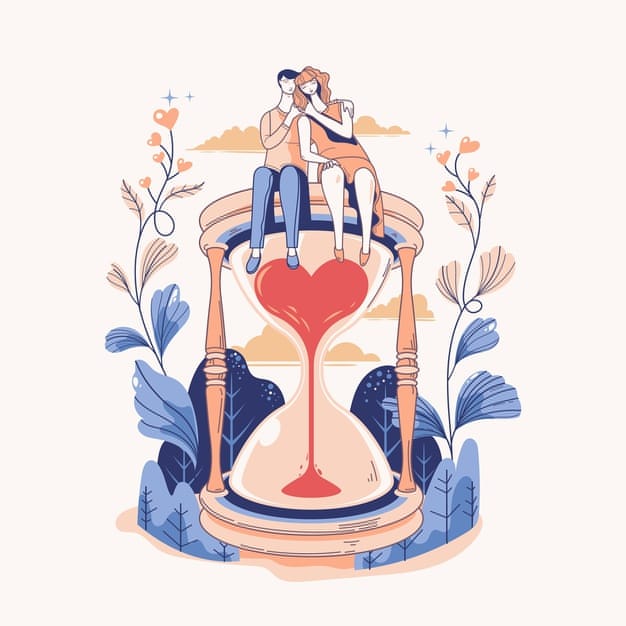Written by: Vritti Rijhwani
The notion “love” is most talked about and yet is confused and limited only to romantic relationships. By doing so we risk neglecting other forms of love that might be healing, comforting, and fulfilling.
The Ancient Greeks classified 8 different types of love and they are :
1. Eros: Erotic love.
Eros was a Greek God of love and sexual desire. Eros is mainly based on sexual attraction and the term “erotica” emerged from here. This love style is a passionate one.
The erotic lover looks out for beauty and physical attractiveness. Driven by sexual pleasure or lust. Doesn’t last for a longer period of time. The body is ever-changing and will age at a certain point. If the love progresses to an upper level including compassion or intensity of a variety of emotions then gradually the love will move to another type of love otherwise prove to be detrimental in nature.
Bartels and Zeki (2000) discovered that passion sparked increased activity in brain areas associated with euphoria and reward, and decreased levels of activity in areas associated with sadness, anxiety, and fear. Evolutionary research (for e.g., Fisher, 2006) indicates that in general, romantic attraction fades, but may exist in some cases to keep older couples energetic, optimistic, and with a companion.
2. Philia: Affectionate love.
This love style doesn’t require romantic attraction. Also known as Brotherly love.
The concept was established by Plato and states that Love doesn’t necessarily require sex. And exists for the divine beauty of love itself. This love style is based on similarity, proximity, same values, respect, exchange of beliefs, and imperfections. Love doesn’t solely survive between romantic partners, there are many other forms of love that can be shared with individuals.
Even though the concept of “love” is good and quite well known, still in today’s century, many cultures and countries restrict the use of the term “love ” only to their romantic relations. In many families, the parents, friends of the same gender, don’t express their love verbally. We understand love is more of actions but still, can the society be less judgemental and open to expressing oneself truly?
3. Storge: Familiar love
Storge is the infinite love that naturally occurs and is rooted in parents for their child. This love knows forgiveness, acceptance, and sacrifice. In this loving form, you feel secure, comfortable, and safe. The fond old memories play the role of a catalyst. A deep emotional connection is shared and experienced. This love is also shared between individuals who are attached together for years and keep personal needs below The significant others’ needs.
Storge is at times also shared between romantic partners, and is friendship based love! Begins with similarity, the same values, interests, hobbies, respect, and then later transcends into love. This love lacks passion and intensity. This style of love is constructed to establish a companionable relationship with someone they know and share interests with.
All the types of love come with their own sets of pains and pleasures!
4. Ludus: Playful love
Adds the spice in our life, for entertainment and excitement purpose with less need of security. In this love, the core belief relies on the note that “Love is not to be taken seriously”. It should be Playful and amusing to be with someone. An uncommitted and sportful relation is shared between individuals and multiple partners co-exist. Ludus is childlike and flirtatious and aims for fun and laughter.
Individuals in an unstable romantic relationship tend to report low self-esteem, high distress, less happiness, and low satisfaction. Having clarity in mind for what you’re aiming and what you’re getting yourself into helps make pleasant molds in long run.
Research states that Ludus is negatively correlated with relationship satisfaction and commitment.
At the finest, the majority of the modern generation engages in Ludus.
The worldly famous “and they happily lived after ” (The Disney tales ) and Bollywood presentation of love has completely ruined one’s understanding and expectations from love, which causes unnecessary pain and suffering.
Let’s try to acquire a new mentality towards love with genuineness and respect in our hearts!
5. Mania: Obsessive love.
This love goes through a huge variety of emotions and is also regarded as emotional love. The imbalance between Eros and Ludus causes Manic love and leads to Codependency in relationships. This love undergoes unhealthy patterns in relationships like insecurity, lack of trust, dependency, and doubtfulness. You can completely avoid this love style by putting your self needs over the partners, evolving a healthy routine, working on your drawbacks.
Most commonly found in teens, this love is characterized by extreme highs and lows in a relationship. Love is intense but also shifts to extreme jealousy and obsessive /possessiveness. This type of love mainly satisfies the need of belonging but fails to establish the main elements of love that are trust, intimacy, commitment, and passion.
Love is one of the fundamental aspects of the experiences of human beings!
6. Pragma: Practical love.
The unique and mature bond of love where one seeks compatibility and the satisfaction of one’s significant desires and needs. Develops over time. This love style is built upon equal effort, dedication, acceptance, encouragement, sacrifice, and forgiveness of harmful actions. Logic and commitment are the foundation of Pragma, this love sticks around for a long span. This love is also fondly recalled as “Standing in love” rather than falling in love. Can be viewed in elderly married couples.
Commitment involves the decision one makes about a relation. For example, Short term commitment thinking pattern can be “I think I’m in love” whereas Long term commitment can be ” I want to be with this person for the rest of my life”.
Commitment is a very strong predictor of relationship satisfaction for all genders. ( Acker &Davis, 1992)
The next time your friend tells you that he/she is in love, you’ll advantage of knowing what love has settled for!
7. Agape: Selfless love.
Regarded as spiritual love, the basic concern is on giving more and not on receiving. Even without any close ties, having unconditional love, compassion for all. A true form of altruism and benevolence. Most closely associated with unconditional love.
Love is an important predictor of happiness, satisfaction, and a box of positive emotions. (Diener &Lucas, 2000)
Studies show that Agape love is positively correlated with relationship satisfaction and commitment.
8. Philautia love: is self-love.
Greeks classified Philautia in two subcategories: selfish and pure. The selfish seeks pleasure, fame leading to Narcissism whereas the pure one requires self-care, to be soft with self, to accept the failures and gives the motivation to work even harder on our faults, so as to become The Best version possible! As we all know, one cannot pour love on others, if we ourselves are low on self-love. Our real friends help us build self and improve on our drawbacks. As in friends circle, we all have that one friend who acts like a mom.
___________
For a better understanding of the types of love;
•for instance takes friendship, the bond consists of philia, storge, and philautia love.
•With significant other, these types of love are common: Eros: The relation where both the partners are infatuated by each other’s beauty and physical attractiveness. Ludus and Pragma.
Most of us have had a heartbreak once in a lifetime and which alters our thinking to play /cheat or use others for our self benefits.
•The most important and genuine connection that we share is with our family, which falls under Storge love: unconditional love and forgiveness. , Agape: we have often seen our parents put their needs and desires second and prioritize their child’s demands and wishes. And Philia love: The affection, care, emotional/physical support we receive is an absolute blessing.
References
Research paper: Does love last forever? Discovering an elusive phenomenon among dating and married couples. By Soumya Sharma and Kanika Khandelwal Ahuja.
https://www.ftd.com/blog/give/types-of-love

